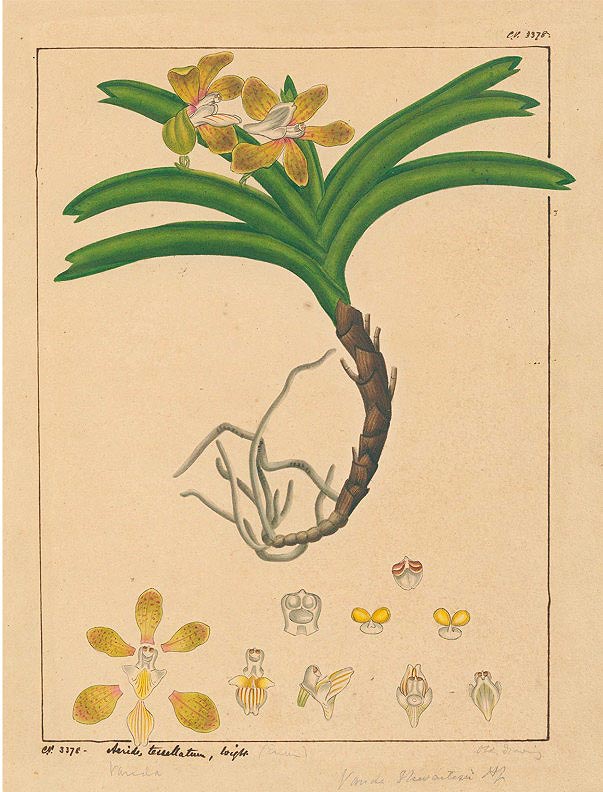After more than 160 years, Sri Lankan scientists have rediscovered Vanda thwaitesii, a delicate tropical orchid, in the Knuckles Mountain Range, a UNESCO world heritage site, the Mongaby reported yesterday.The species, last documented in the 19th century through drawings by Royal Botanic Gardens draftsman Haramanis de Alwis, had long been presumed extinct.
The rediscovery was made possible through citizen science. Bhathiya Gopallawa, a Ph.D. candidate at the University of Peradeniya, shared a painting of the orchid on a Facebook group for plant enthusiasts. Pradeep Kodithuwakku, who had previously found the plant near a stream in Rangala, and nurtured it at home, recognised it. Together with field botanist Himesh Jayasinghe, they confirmed the plant’s identity.
While the find brings hope, scientists caution against complacency. Rare orchid posts on social media can encourage illegal collection, with Kodithuwakku reportedly receiving offers of up to Rs. 150,000 for the plant’s location. The team relocated the orchid to the Royal Botanic Gardens in Peradeniya, where it flowered and produced seed pods, though seedlings failed to survive due to reliance on symbiotic soil fungi.

A detailed drawing of V. thwaitesii, by Haramanis de Alwis, was used to describe the orchid 160 year ago and is now available at the National Herbarium, Department of National Herbarium, Sri Lanka. Image courtesy of the Department of National Botanic Gardens, Sri Lanka. (Pic courtesy Mongabay)
The rediscovery also resolved a decades-old taxonomic confusion, reinstating the Sri Lankan species’ identity and separating it from a misidentified Indian orchid, now classified as V. sathishii.
Sri Lanka is home to over 200 wild orchid species, with 35% endemic. Yet habitat loss, illegal collection, and climate change threaten these plants. Many orchids rely on single pollinators, specific soil fungi, or highland habitats, making them highly vulnerable to environmental shifts. Fewer than 10 individuals of V. thwaitesii remain in Rangala, and numbers continue to decline.
Orchid researcher Jeevan Kottawa-Arachchi emphasises that legal protection alone is insufficient. Public awareness and conservation efforts are essential to safeguard these species. The National Red List 2020 notes that around 68% of Sri Lanka’s orchids are threatened, including 84% of endemic species.
Gopallawa describes the rediscovery as “a second chance” for V. thwaitesii but warns that action must follow. “What we do with that chance will decide whether these species survive the century,” he says, underscoring the urgent need for coordinated conservation measures combining science, law enforcement, and community engagement to protect Sri Lanka’s fragile floral heritage.
The story of V. thwaitesii highlights both the potential of citizen science and the pressing challenges facing the island’s unique and vulnerable orchid species.
from The Island https://ift.tt/a0uPGtz

No comments:
Post a Comment